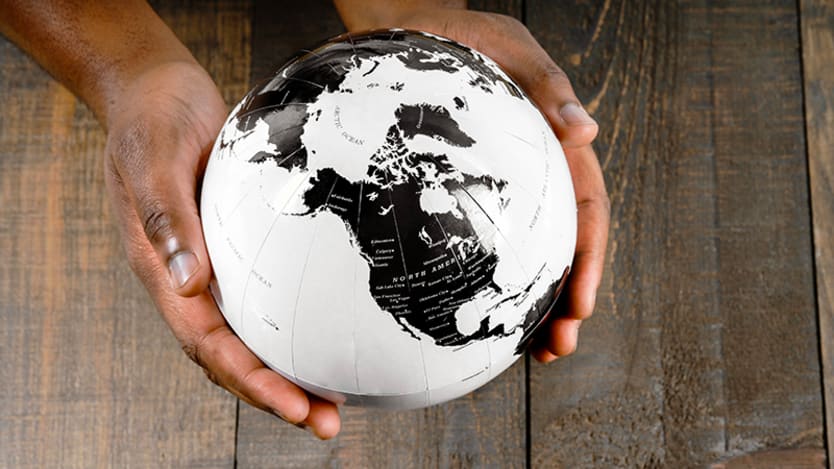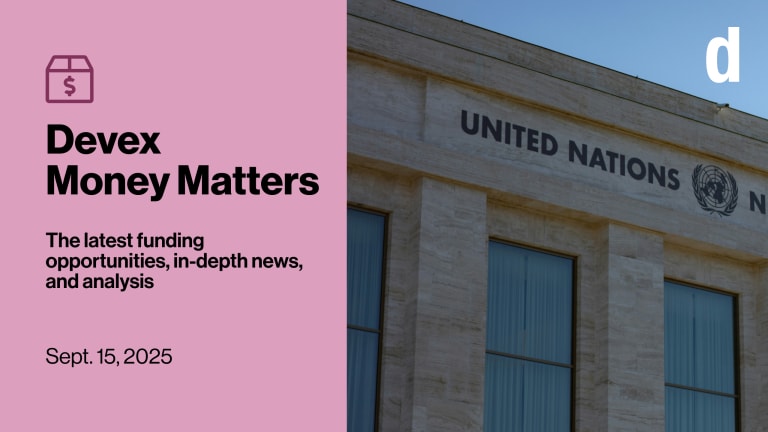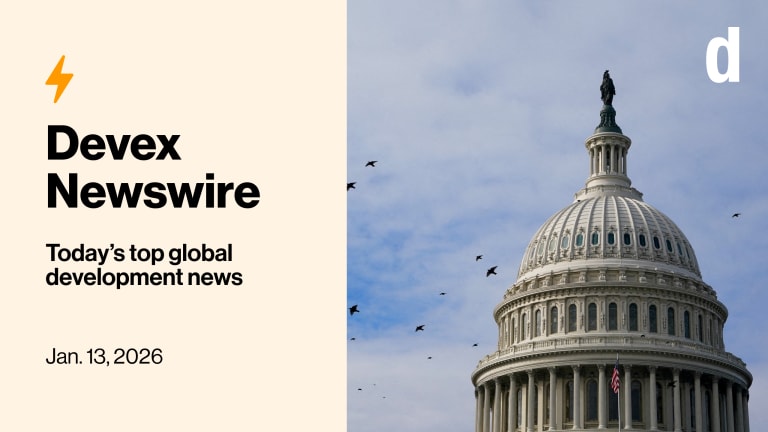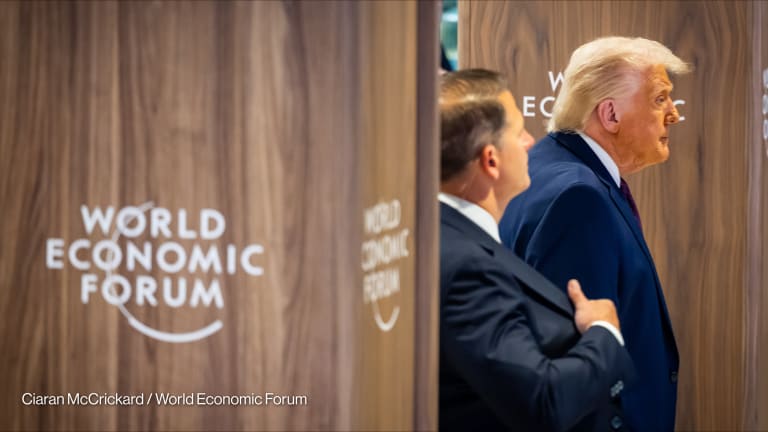
WASHINGTON — The adoption of the Sustainable Development Goals in 2015 represented a shared vision to cooperate in pursuit of common international goals. Four years later, that optimistic agenda has repeatedly been overshadowed by narrower national interests that put development tools at the service of geopolitical ambitions.
In 2019, those dynamics only intensified. The Trump administration sharpened its efforts to confront China’s growing global influence, the United Kingdom sought to detach its development interests from those of the European Union, governments used aid as leverage in the Middle East and South America, and major economies turned from common concerns to self-protection in global climate change negotiations.
Global development has not been immune from the return of geopolitics.
As development cooperation enters a new decade — and with 10 years remaining to achieve the lofty SDGs — it remains to be seen whether world leaders can recapture a sense of shared commitment to development effectiveness. That question will hinge on the outcome of elections, the strength of multilateral institutions to mediate and resolve international disputes, and the power of civil society to mobilize popular support for tackling the world’s biggest challenges.
Here are some of the key geopolitical issues that shaped global development in 2019.
Great power competition
Since taking office in 2017, the Trump administration has shown deep skepticism about U.S. foreign assistance, repeatedly calling for budget cuts and paring back America’s support for international organizations. At the same time, the administration looked for ways to realign the U.S. government’s development programs around specific economic, security, and foreign policy goals.
At the United Nations in September 2018, Trump announced that his administration was conducting a review of its development programs, to ensure that “we are only going to give foreign aid to those who respect us and, frankly, are our friends.” Roughly a year later, details about that process finally leaked out of the White House in the form of a draft document titled, “Realigning Foreign Assistance for a New Era of Great Power Competition.”
“It shall be the policy of the United States to realign its foreign assistance to avoid aiding its adversaries and competitors, focus assistance on friends and allies, require that foreign assistance advance identifiable United States national interests, promote burden-sharing with other partners, and catalyze private-sector investment and trade that also benefits the economy of the United States,” the document reads.
In November of this year, Devex reported on further details of this process, including that U.S. Agency for International Development missions were required to produce “foreign assistance realignment narratives,” which explained how their fiscal year 2019 budgets advanced the 10 principles outlined in the administration’s framework.
The first of these principles is, “Win the great power competition,” and it focuses squarely on geopolitical rivalries with other nations, particularly China. In order to determine whether their programs are advancing this goal, USAID missions were instructed to consider whether countries might be using U.S. assistance to repay debt from Chinese loans — a persistent concern among administration officials.
Brexit fallout
The U.K.’s planned departure from the European Union has carried uncertain and wide-ranging implications for the country’s development agencies, priorities, and partners.
The Conservative Party’s resounding victory in the U.K.’s election this month has raised concerns among development advocates that Prime Minister Boris Johnson will tie the country’s development programs more closely to national interests. A dramatic signal of that possibility will be whether Johnson follows through on rumored plans to merge the Department for International Development with the U.K. Foreign & Commonwealth Office.
Development advocates have been critical of that proposal, arguing that it could put the U.K.’s reputation as a development effectiveness leader at risk.
“Any merger of the FCO and DFID could mean U.K. aid will no longer be about helping those suffering the consequences [of] climate change, and supporting people trying to survive war and disease. U.K. aid could instead become a facade for U.K. foreign policy, commercial interests, and political objectives,” said Stephanie Draper, CEO of Bond, the U.K. network of development organizations.
Climate cooperation
Just as the SDGs offered a universal vision for ending poverty, improving health, and protecting human rights, the Paris Agreement on climate change — also adopted in 2015 — established a shared framework for tackling another of the planet’s biggest challenges: limiting global warming to less than two degrees Celsius. Four years later, as governments continue to grapple with how to implement that agreement, the spirit of cooperation that accompanied its creation has faded in the face of national interests and economic competition.
The Paris Agreement relies on voluntary national action to reduce carbon emissions, adapt to climate change impacts, and provide financial and technical support to countries that require assistance to achieve those goals. At a time when some of the most critical governments are either in competition with each other — such as China and the U.S. — or turning inward with policies that run counter to the Paris Agreement’s goals — such as Brazil — the voluntary framework is under enormous strain.
The political jockeying displayed by governments at COP25 in Madrid stands in stark contrast to the unprecedented public demands for climate action around the world. With one year remaining to raise the ambition of national climate plans to a level consistent with global climate goals, civil society and governments working to protect the status quo appear destined for critical showdowns on issues ranging from emissions reductions, to financial support for climate-vulnerable countries and the role of the private sector in limiting global warming.
‘Safe zones’ and blockades
As old conflicts persisted and new ones flared in 2019, governments seeking to exert influence over their outcomes appealed, in some cases, to humanitarian arguments to justify their actions.
In Syria, Turkey paired its incursion across the country’s northern border with heavily criticized plans to establish a “safe zone” to which Syrian refugees could return — though human rights groups have said the area is not safe. The plan, agreed between Turkey and Russia — which have both sought to project their power into the uncertainty created by almost a decade of war — would see Kurdish forces pushed out of the area and Russian and Syrian forces move in to patrol it.
Humanitarian agencies have pushed for the U.N. Security Council to maintain their authorization to deploy cross-border assistance to the country, while Turkey and Russia have suggested they want to see aid channeled through the so-called “safe zone,” instead of through Kurdish-controlled areas.
In February, the Trump administration’s attempts to support the overthrow of Venezuelan President Nicolas Maduro put humanitarian relief squarely in the crosshairs. The U.S. government stockpiled aid in Colombia, and supported opposition leader Juan Guaidó’s attempts to get assistance across the border and into the country, despite the government’s refusal to accept it. Aid groups worried that in the midst of health and food security crises, humanitarian principles might be sacrificed in favor of a public display of support for Maduro’s political rivals.
“What is particularly worrisome to watch from this vantage point is the … politicization of the provision of humanitarian assistance,” said Sheba Crocker, vice president for humanitarian policy and practice at CARE International.








